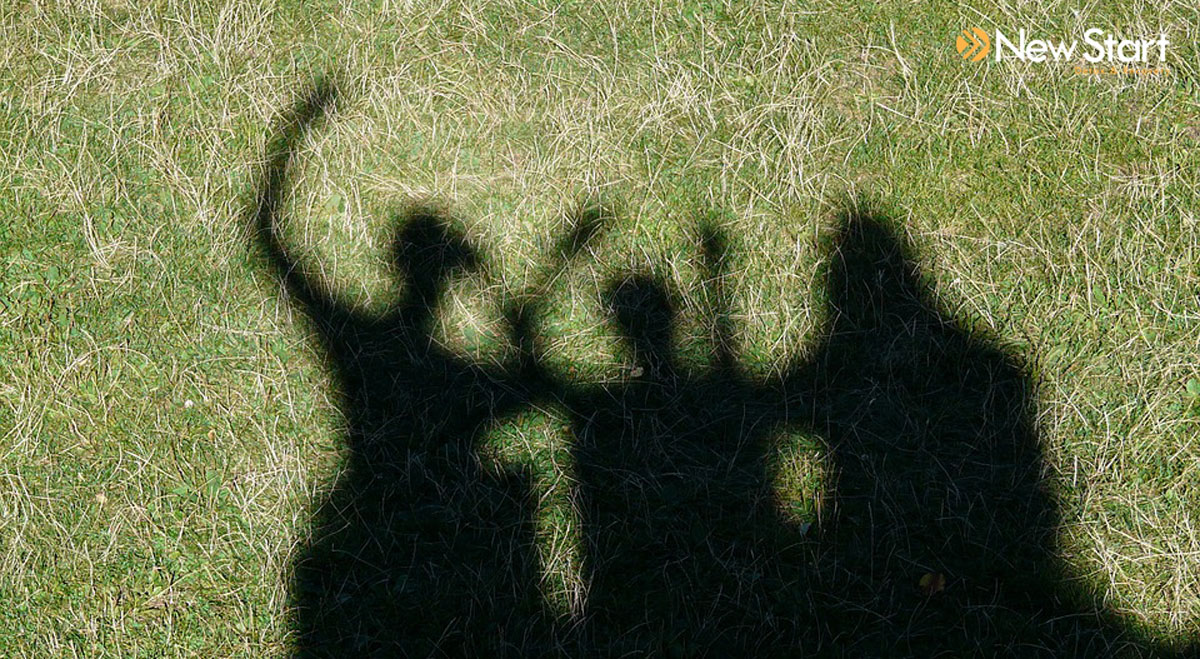For as long as programs like AA have been around, anonymity has been endorsed as the best way to ensure safety and comfort to recovering addicts. The secrecy helps people to feel comfortable going to meetings and sharing their stories. If no one knows who you really are, then they can’t really judge you off of your darkest stories, right? While that’s not exactly why the second “A” in Alcoholics Anonymous came to be, it’s essentially what it does. Anonymity isn’t a disguise. It’s a shield.
 Recently, however, many people have been stepping up and laying down that shield, forsaking their anonymity to better their recovery. It’s a personal choice because recovery is a personal journey. But does shedding the anonymity cloak actually help recovery?
Recently, however, many people have been stepping up and laying down that shield, forsaking their anonymity to better their recovery. It’s a personal choice because recovery is a personal journey. But does shedding the anonymity cloak actually help recovery?
Why Anonymous?
Anonymity is a huge part of Alcoholics Anonymous (I mean, it is in the title, after all). The whole premise of AA is based off of its Twelve Step Program as well as its Twelve Traditions. The story behind being anonymous in recovery is explained in Tradition Twelve:
“Anonymity is the spiritual foundation of all our traditions, ever reminding us to place principles before personalities.”
This preface calls attention to the belief that donning anonymity allows us to set aside our own personal agendas and uphold the morals and practices of AA’s recovery program. AA advocates explain that this is the best way to go through recovery. However, the tradition of anonymity didn’t start out of this idea of casting aside personal agendas for a greater good. It began out of fear. AA started as a secret society that was forced into concealment because of the stigmas around addiction and substance abuse. Society didn’t understand the disease. (Some people still don’t fully understand). And, unfortunately, we tend to discriminate against things we don’t understand.
In its early stages, AA trailblazers felt the fellowship was too small and had too few members to protect itself against the onslaught of opinions and personal appeals that the public was sure to throw at it. They encouraged the idea of members remaining anonymous in recovery. And so the second “A” was conceived.
Pros of Anonymity:
- Eases the fear of being judged
- Easier to speak in front of people
- Your recovery can be as secret as you want it to be
- Others focus on your story, not your name
- Stronger sense of fellowship because everyone is put at an equal level
Cons of Anonymity:
- Easier to feel disconnected
- Your recovery can feel less personal
- Harder to accept responsibility
- Harder to connect your personal life to your program
- Not everyone wants to be anonymous (but may feel shamed into it by the traditions)
Pros and cons aside, anonymity does help people ease themselves into the “real world” as recovering alcoholics or addicts. Society has made improvements in accepting addiction, but the stigma against it is deep and hard to permanently uproot. And it’s hard to feel proud of your recovery if you’re anticipating negativity and judgment.
Embracing Identity
Regardless, many people are starting to see that embracing their own identities and personal connections to recovery can help themselves and others. At this point, programs like Alcoholics Anonymous aren’t being bullied into anonymity by others; they’re boasting anonymity as a tool to help keep a certain mindset amongst themselves. While that may be okay for some people, it doesn’t work for others.
 Recovery isn’t a separate part of someone’s life. It’s not an unpaired sock that can be kept separate in a bottom drawer and called upon when needed. Recovery is incorporated into our everyday lives, sometimes seamlessly and sometimes explicitly. So, separating it from our personal identities seems a bit counteractive. It’s hard to keep something hidden or suppressed when it’s such a big part of your life. Accepting recovery as a main aspect of our lives and letting it weave its way into our everyday doings can actually be very freeing. You don’t have to go around shouting, “I’m a recovering meth addict!” But letting your friends ask questions about your addiction or not feeling ashamed to share an article from your favorite recovery blog on Facebook can actually bring you closer to your recovery. Embracing your journey and not being afraid to live your life is healthy.
Recovery isn’t a separate part of someone’s life. It’s not an unpaired sock that can be kept separate in a bottom drawer and called upon when needed. Recovery is incorporated into our everyday lives, sometimes seamlessly and sometimes explicitly. So, separating it from our personal identities seems a bit counteractive. It’s hard to keep something hidden or suppressed when it’s such a big part of your life. Accepting recovery as a main aspect of our lives and letting it weave its way into our everyday doings can actually be very freeing. You don’t have to go around shouting, “I’m a recovering meth addict!” But letting your friends ask questions about your addiction or not feeling ashamed to share an article from your favorite recovery blog on Facebook can actually bring you closer to your recovery. Embracing your journey and not being afraid to live your life is healthy.
Building Clout for a Better Tomorrow
The only way to understand something is to become familiar with it. People who fear, judge, and scrutinize addiction and recovery will continue to do so if people choose to remain anonymous. There are essentially two outcomes to shedding your anonymity: (1) people will come to understand your struggle and your journey, or (2) people will judge it. The thing is, there’s not a 50/50 probability between these two outcomes. It’s more of a progressive timeline. The world may judge those who choose to step forward and speak openly about their recovery, but it will also come to accept them in time. The same is true of any controversial topic. It takes openness, honesty, and conversation for things like addiction to get the notice and support they need.
Stepping up and openly speaking about your recovery can help others in the future. Addiction has been accepted as a disease but treatment facilities still lack societal and financial support. Programs like AA can offer support and fellowship to recovering addicts but these addicts often harbor addictions that need to be medically treated first. For example, alcohol can be very dangerous to quit cold turkey. More often than not, someone with a severe alcohol addiction needs to go through detox. But, in our capitalist society, fellowship can’t pay for medical expenses… as nice as that would be. Treatment facilities don’t just require acceptance for the emotional wellbeing of the addicts, but also to gain financial support to help the physical and mental states of these people who need help.
Uniting to Take a Stand
There is actually a network to unite and help people who are interested in speaking up about addiction. Facing Addiction expresses the importance of speaking up and gives local resources for people who need support in doing so.
Your Life, Your Recovery
Some people aren’t comfortable with making their recovery public. It’s perfectly okay to choose to remain anonymous. In your life, your main priority should be your recovery. If it helps a recovering addict to preserve his anonymity, by all means, do it. You don’t need to share your recovery with Facebook friends, coworkers, or the rest of the world if it won’t be beneficial to you. It is your recovery after all. That said, there are certain people who need to be involved in our recovery because our addictions affected them, too. Our kids, significant others, and parents are all examples of people who fall into this category. Addiction is a family disease. And while they’re not physically going through treatment and recovery with you, they are present, witnessing and supporting your recovery. But it’s okay to still set boundaries with these people if you aren’t comfortable with full disclosure.
Priorities, Priorities, Priorities
The second “A” was added to recovery programs for a reason. Being anonymous has helped many people in their recovery. But that doesn’t mean it’s for everyone or even that it has to be permanent. Personal acceptance will lead to local acceptance, which will eventually open the doors for the societal acceptance that addiction and recovery need. But an addict can’t help himself or others if he isn’t comfortable in his recovery. What it comes down to is sure, removing the cloak of anonymity could help to break the stigma around addiction and draw much needed support, but if remaining anonymous helps a person stay strong, confident, and positive in their recovery, then that’s exactly what they should do.
Anonymous or not, recovery takes will and work. But it can turn your life around and leave you with hope, strength, and positivity. New Start can help to get you there. If you or someone you know is struggling with addiction, call us at 855-737-7363 or reach out to us on our live chat. We want to help.

